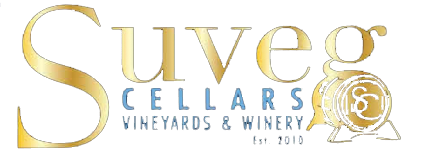Pianetta Harvest 2017
This harvest season, we had the pleasure of visiting the Pianetta Winery in Paso Robles. Spending time harvesting with the Pianetta team was invaluable, as working with seasoned industry veterans provided us great insight about improving and perfecting our own processes. Here are a couple photos from the trip!
Pianetta Vineyards are located 15 miles north of Paso Robles tucked in the hills of Indian Valley, where the 20 year old estate is home to 65 acres of Cabernet Sauvignon and Syrah vines.
Pianetta is home to state of the art crusher and tanks, which allowed us to handle their 65 acre harvest. The yield this year was great! Just check out the photos below.
The fork has a bin of grapes weighing approximately a half ton or 1.000 pounds. Each bin must be weighed first in order to determine its exact weight so that we know the total amount of product we are working with for the purpose of several applications including additions.
Craig was able to get up close and intimate with many of Pianetta's winemaking processes and equipment. Here he is on top of the crush pad using a plastic paddle to guide the fruit into the crush chamber. This is important since often the chamber gets hung up and has to be vacated with the paddle. Not a prudent idea to use your hands!
Craig makes additions at the crush pad. Additions include enzymes, color enhancers and sulfites to inhibit bacterial spoilage. These additions are measured based on the weight of each bin before the bin is forked into the stainless steel tanks.
Press day! The must (fermenting grapes) in the tanks over the course of 7 days has converted sugar to alcohol. The solids drop off to the bottom of the tank and the remaining liquid (now wine!) is racked off (transferred) to another tank and is called "free run" because it has not and will not be pressed. What remains are the "solids" which must be hand shoveled through a portal and placed in a basket/bladder press which is inflated in this case with water (SC uses compressed air; actually safer) to inflate the bladder and press the solids into juice.That juice is then either racked to a separate tank or into the same tank as the free run depending. Imagine shoveling mud. Its a real workout! Luckily, there is plenty to drink post lifting.

























